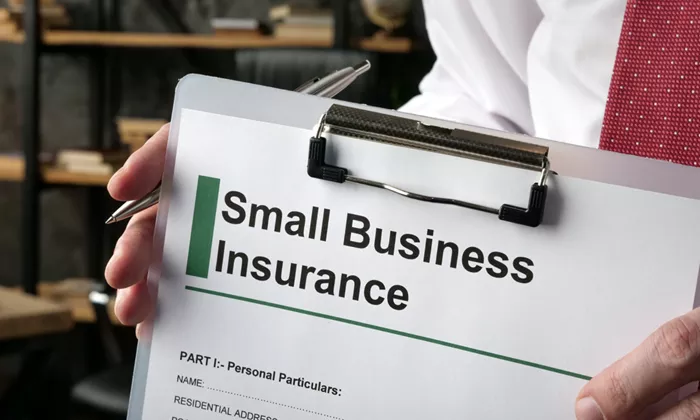As a dental hygienist, you play a vital role in providing care to patients. You perform cleaning procedures, take X-rays, and educate patients on oral hygiene. While you’re skilled in the practice of dental hygiene, there’s always the possibility of unexpected situations that could lead to a lawsuit. That’s where liability insurance comes in. In this article, we will explore the different types of liability insurance available to dental hygienists and how to determine the best option for your needs.
Understanding Liability Insurance for Dental Hygienists
Liability insurance is designed to protect professionals like dental hygienists from claims that may arise due to errors or negligence during their work. Even the most careful and experienced dental hygienists can make mistakes, and those mistakes can lead to costly legal battles. Liability insurance offers financial protection if you are sued for malpractice or other claims related to your work.
Dental hygienists need liability insurance for several reasons:
Accidental Mistakes: A dental hygienist may unintentionally cause harm to a patient during a routine cleaning, such as damaging gums or injuring soft tissue. Even if the injury is minor, it could result in a lawsuit.
Patient Complaints: If a patient feels they were mistreated or dissatisfied with the service, they might file a formal complaint that could escalate into legal action.
Professional Protection: Liability insurance helps protect your reputation and career. It ensures you can continue working without the constant worry of a lawsuit damaging your financial security.
With the right insurance, you can focus on doing your job without worrying about what could happen if something goes wrong.
Types of Liability Insurance for Dental Hygienists
Dental hygienists can choose from various types of liability insurance, depending on their specific needs. Understanding the differences between these policies will help you make an informed decision about which is best for you.
1. Professional Liability Insurance (Malpractice Insurance)
Professional liability insurance, also known as malpractice insurance, is one of the most important types of coverage for dental hygienists. This insurance protects you against claims of negligence, errors, or omissions made during the course of your work. It is particularly relevant for dental professionals who provide hands-on care to patients.
For example, if a patient claims that you caused unnecessary pain, failed to perform a procedure properly, or mishandled their treatment, professional liability insurance will help cover the costs associated with defending yourself in court, settlements, or judgments.
Why Do You Need Professional Liability Insurance?
Dental hygienists work closely with patients, performing tasks like teeth cleanings, polishing, fluoride treatments, and educating them on proper dental care. These hands-on activities leave room for human error, and even small mistakes could lead to costly consequences. Professional liability insurance is designed to help cover:
Errors in treatment: If you make an error that leads to injury or other consequences, malpractice insurance helps cover your legal fees.
Patient dissatisfaction: Sometimes, patients may not be happy with the results of a procedure. If they sue for dissatisfaction, this type of insurance can help.
Injuries caused by your work: Accidents can happen during procedures, and even if the injury is minor, a patient could decide to pursue legal action.
2. General Liability Insurance
General liability insurance is another type of insurance to consider for dental hygienists. While professional liability insurance covers mistakes or errors in your professional practice, general liability insurance protects against non-professional risks that could occur in your business.
For example, general liability insurance can help protect you if:
A patient slips and falls in your office, leading to an injury.
A visitor to your office damages their personal property, and you are held responsible for the damage.
A third-party individual claims that your practice harmed their reputation.
General liability insurance is often bundled with other coverage types in comprehensive policies, but it’s important to understand the distinction between general liability and professional liability. While general liability covers injuries or accidents that happen on your premises or involve your non-professional services, professional liability covers issues directly related to your practice as a dental hygienist.
3. Dental Hygienist Business Insurance
If you’re an independent dental hygienist working in your own practice or as a contractor, you might also need business insurance. This can be tailored to cover a range of risks involved in running a business. Business insurance typically includes general liability coverage but may also cover things like:
Property insurance: Protects your office space and equipment from damage, theft, or loss.
Business interruption insurance: Covers lost income if your practice has to close due to unexpected events (e.g., a natural disaster or significant equipment failure).
Workers’ compensation: If you have employees, this will cover their medical expenses and lost wages if they’re injured at work.
While business insurance is typically for those who own their practice, even dental hygienists working as independent contractors or freelancers might want to look into some form of coverage for business-related risks.
4. Umbrella Insurance
Umbrella insurance is additional coverage that goes beyond the limits of your existing insurance policies. For example, if you have a professional liability policy but the damages exceed the policy’s limit, umbrella insurance would cover the excess amount. This type of insurance offers extra protection in case of catastrophic events that could put your career and personal assets at risk.
Umbrella insurance is useful for dental hygienists who want comprehensive protection, especially if they own a business or have other significant personal assets that could be vulnerable to lawsuits.
How to Choose the Best Liability Insurance for Dental Hygienists
When it comes to choosing the best liability insurance for dental hygienists, several factors should be taken into account. Here are some key considerations to help you make the best choice for your specific needs:
1. Coverage Amount
One of the most important factors to consider is the coverage amount offered by the insurance policy. The amount of coverage you choose should reflect the level of risk associated with your work. As a dental hygienist, you’ll want enough coverage to protect against potential lawsuits related to patient injuries or mistakes made during treatment.
Policies typically offer coverage amounts in the range of $1 million to $3 million per occurrence, with annual aggregate limits of $3 million to $5 million. It’s essential to assess your own risk and determine how much coverage you’ll need to feel protected.
2. Cost of Premiums
The cost of premiums will vary depending on the insurance provider, coverage limits, and your professional experience. On average, professional liability insurance for dental hygienists may cost between $300 and $1,000 per year. However, the actual cost will depend on your location, the type of practice you work in, and the specific risks you face.
While it’s important to find affordable coverage, don’t compromise on quality. A lower-cost policy with insufficient coverage could leave you exposed to financial risks in the event of a claim.
3. Reputation of the Insurance Provider
When selecting an insurance provider, it’s crucial to research their reputation and financial stability. Look for a company with a strong track record in the insurance industry, especially in providing coverage for healthcare professionals.
You can check the insurer’s ratings from agencies like A.M. Best or Standard & Poor’s to gauge their reliability. Reading reviews and testimonials from other dental hygienists can also provide valuable insights into the quality of service and customer support you can expect.
4. Policy Exclusions
It’s important to thoroughly read through the policy and understand any exclusions. Some liability insurance policies may exclude certain types of coverage, such as coverage for specific procedures or practices outside the scope of typical dental hygiene services.
Make sure to ask the insurance provider about any exclusions that may apply to your work and ensure you’re fully covered for the specific risks you face.
5. Customer Service and Claims Process
Finally, consider the quality of customer service provided by the insurance company. You want an insurer that is responsive, easy to work with, and efficient when handling claims. A smooth claims process can make all the difference if you ever need to file a claim.
Look for insurance providers with a reputation for fast claims resolution and excellent customer service.
Conclusion
Liability insurance is essential for dental hygienists who want to protect their careers and personal assets from the risks associated with their profession. Whether you choose professional liability insurance, general liability insurance, or a combination of policies, having the right coverage ensures that you can continue your work with confidence, knowing that you are protected from lawsuits and other unexpected events.
When selecting the best liability insurance for your needs, make sure to carefully evaluate the coverage limits, costs, and reputation of the insurer. With the right policy in place, you can focus on providing excellent care to your patients without worrying about the financial impact of potential legal claims.
Related topic:
Do I Need Workers Compensation Insurance For Independent Contractors
How Much Professional Liability Insurance Do I Need
Is Professional Liability Insurance The Same As Malpractice Insurance











